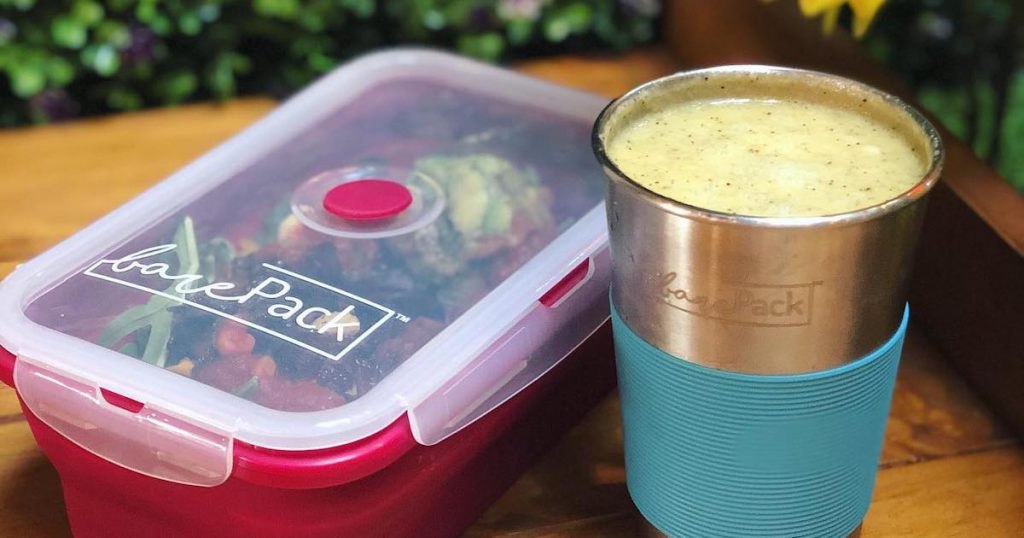The Covid-19 pandemic has derailed the efforts of environmentalists and green lovers to reduce plastic waste.
According to a study by six alumni students from the National University of Singapore’s Master of Science (Environmental Management), Singaporeans generated an extra 1,334 tonnes of plastic waste during the two-month circuit breaker.
This is equivalent to the weight of 92 double-decker buses, and was largely due to the surge in takeaway and delivery meals.
Recently, three food delivery giants in Singapore — GrabFood, foodpanda and Deliveroo — have started offering the option for customers to have their meals delivered in reusable containers.
But will this work out in helping to reduce plastic waste?
A Valiant Effort To Reduce Plastic Waste

They have partnered with two food container sharing services in Singapore called Muuse and BarePack.
Both companies offer similar services; they provide disposable containers that can be used for food deliveries.
Instead of tossing the containers out into the trash bin, customers have to return them back to participating restaurants.

Currently, there are about 100 eateries under BarePack and 50 under Muuse.
GrabFood launched its partnership with Muuse last month, and has 18 restaurants on board.
Meanwhile, Deliveroo began its partnership with BarePack in August. Although BarePack is available for takeaway at over 100 restaurants across Singapore, the Deliveroo website lists only eight.
Foodpanda has partnered with both Muuse and BarePack since July and April respectively, with a total of 71 outlets under the two partnerships.
These partnerships show that effort has been made by both larger firms and startups to reduce plastic waste.
BarePack told TodayOnline that its partnership with Foodpanda has saved over 50kg of plastic so far.
However, it remains unclear if these efforts will make a substantial change in the amount of plastic waste generated.
A Logistical Challenge

Startups like Muuse and BarePack are likely to face logistical challenges in their implementation of such services. One example is ensuring that customers return the reusable containers.
Both companies have put in place measures to prevent customers from keeping the reusable containers indefinitely.
Muuse charges S$25 to customers who do not return their containers after 14 days.
On the other hand, those who are not BarePack members have to pay a S$6 deposit and they will only get back this money when they return their containers.
However, imposing such deposits might deter customers from even using the service in the first place.
Furthermore, both customers and the restaurants have to make an effort to wash the containers, which might be a hassle for establishments who already face manpower shortages and the like.
Singaporeans Love Convenience
The demand for convenience in Singapore is ever-rising.
According to a 2018 report released by the Singapore Environment Council, a significant number of Singaporeans cited inconvenience as one of the reasons for not recycling.
The love for convenience is also precisely why the food delivery industry has been booming in recent years.
For Singaporeans who might not have much extra time out of work, food delivery in disposable containers are a huge time-saver.
Besides having to wash the containers, people have to also seek out participating restaurants to return them to.
At this point of time, only a small percentage of dining establishments in Singapore are subscribed to services like the ones Muuse and BarePack offer.
Echoing this statement, Vanessa Tan, 25, told Vulcan Post that she is hesitant to use such container-sharing services as there are only a few establishments where she could return the containers to in the area where she lives.
Hence, those who do not live in the vicinity of participating restaurants may find it difficult to participate in these initiatives, even if they wanted to.
What Is A Better Alternative?

Although it started with a noble cause, using reusable containers for food delivery services might not be sustainable unless the take-up rate is high enough.
Furthermore, this leaves out a very integral aspect of Singapore’s dining scene — hawker centres.
According to the National Environment Agency (NEA), there are over 100 hawker centres in Singapore, with most of them located within heartlands.
Instead of using regular disposable containers for takeaway at hawker centres, reusable containers can be used there instead.
Though the concept is similar to what the food delivery giants are piloting, customers might be more likely to participate in this initiative if stations to return the containers were widespread enough.
Moreover, the footfall at hawker centres is high due to affordability and convenience factors. Therefore, returning the containers would be a lot easier as there is at one hawker centre in every neighbourhood.
Ultimately, these initiatives will only be able to make a significant impact in reducing the plastic waste in Singapore if a large enough number of people take part.
Till then, it is worth attempting to implement them in places that are easily available to the masses, such that it can also change mindsets at the same time.
Featured Image Credit: BarePack via Facebook











